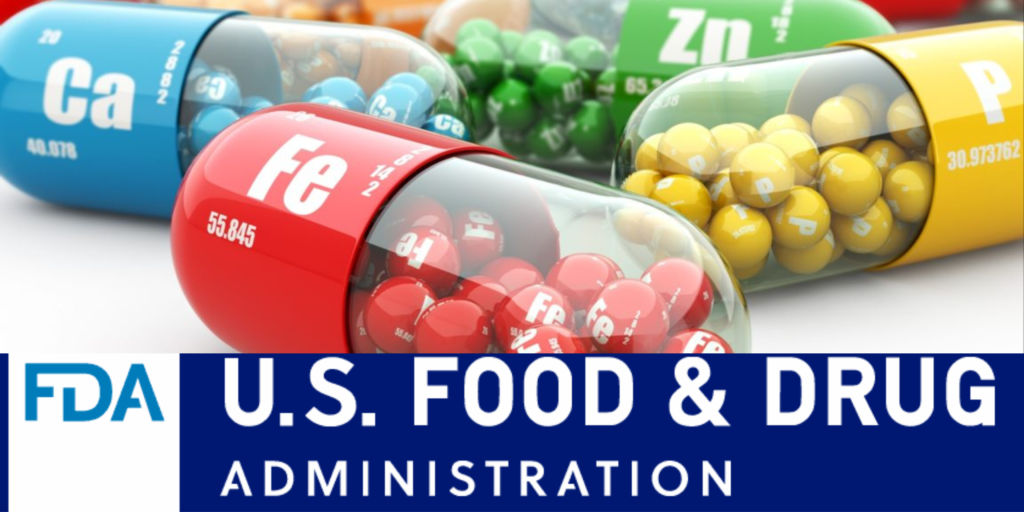
The effectiveness and safety of only few dietary supplements available on the market have undergone extensive testing.
More people than ever are using dietary supplements, including probiotics, vitamins, minerals, and botanicals. The Food and Drug Administration reports that over 75% of Americans take at least one.
Do any of them have any value? There is conflicting research. Numerous large, randomized clinical trials have demonstrated the benefits of some vitamins, particularly multivitamins. Others have been demonstrated to have the potential to be cause harm. Many are in the middle.
The FDA estimates that up to 100,000 different supplement products are offered in U.S. retailers and online. They include herbal remedies, multivitamins, and weight-loss-promising mixtures, some of which may be harmful or make exaggerated claims to improve brain function.
In 2023, Robert F. Kennedy Jr., the health secretary nominee for President-elect Donald Trump, told podcaster Lex Fridman in 2023 that he takes “a ton of vitamins and nutrients,” but that he was unable to mention them all because he “couldn’t remember them all.” Kennedy accused the FDA, among other things, of “aggressive suppression” of vitamins and nutraceuticals in an October post on X. The FDA actually has little control over supplements after they are sold. Researchers from the California Department of Public Health expressed worries about items that include unapproved and potentially dangerous substances in a 2018 study.
The FDA now considers dietary supplements to be food under the Dietary Supplement Health and Education Act of 1994. Because of this paradigm, nutritional supplements are regulated by the government as food items rather than medications. The corporations that offer the products are therefore primarily responsible for monitoring their efficacy and safety. At an interview posted on the FDA’s website, Dr. Cara Welch, director of the FDA’s Office of Dietary Supplement Programs at the Center for Food Safety and Applied Nutrition, stated that the FDA does not review dietary supplements or their product labeling prior to their sale to the general public. “The majority of products can actually be legally introduced to the market without the FDA even being aware of it.”
The FDA requires a “new dietary ingredient” notification from companies that wish to sell dietary supplements that contain ingredients not found in foods sold in the United States. This notification must include a “history of use or other evidence of safety establishing that the dietary ingredient, when used under the conditions recommended or suggested in the labeling of the dietary supplement.
The FDA does not approve or reject supplements based on component efficacy; instead, it examines alerts for safety concerns.
According to Dr. JoAnn Manson, head of Brigham and Women’s Hospital’s preventive medicine section, “just a small percentage of the dietary supplements on the market have undergone extensive testing for efficacy or safety.”
Additionally, businesses might take advantage of a loophole known as generally recognized as safe, or GRAS. This classification permits the use of ingredients in new products that have been determined to be safe based on research or the fact that they are already used in food. There is no need to notify the FDA.
According to Jensen Jose, regulatory counsel at the Center for Science in the Public Interest, a nonprofit consumer advocacy organization, “companies can just declare something as GRAS and then add it to supplements, and the FDA will never know about it unless there is a major problem.”
Research limitations
The government does have the power to request a recall if a product has negative side effects after customers begin using it or if the manufacturer is found to have made false claims about a supplement. Many vitamins and minerals on the market are typically safe, if not always effective. Additionally, some businesses choose to self-regulate.
According to Steve Mister, president and CEO of the Council for Responsible Nutrition, a trade association and lobbying group that advocates for companies that produce supplements, “what we do in self-regulation goes above and beyond what is required in federal regulation.” “There is a widespread belief that the industry must act responsibly.”
According to Dr. David Seres, director of medical nutrition at the Institute of Human Nutrition at Columbia University Medical Center, research on the impact of supplements on human health is challenging, expensive, and time-consuming.
“Most of the research that is discussed is observational, meaning that two things are correlated but that does not establish a cause-and-effect relationship,” Seres stated. “These types of studies typically make up the majority of nutrition research.”
According to Stanford University nutrition professor Christopher Gardner, “there are definitely supplements with proven benefits.” “A lot of supplements are probably not helpful, but they are also not dangerous.”
More is not always better.
Manson, who oversaw the multivitamin clinical trial COSMOS-Mind, advised consumers to exercise caution while taking vitamins that contain “mega doses.”
“You need to check the level and see what the percentage of daily intake is. It frequently states 400% or 500%, which is significantly higher than the recommended daily consumption, she noted.
Such large dosages may be harmful or a financial waste.
Based on evidence that suggests vitamin D isn’t helpful in preventing falls and fractures in older adults, unless a person has a diagnosed deficiency, the U.S. Preventive Services Task Force, an independent panel of medical experts that makes recommendations regarding preventive and primary care, recently drafted a new recommendation.
A regular multivitamin may help prevent memory loss, according to some data, although many studies have not found that vitamins have any magical health benefits. According to research, supplements typically don’t provide the same advantages as a diet rich in fruits, vegetables, and fatty fish, such as the Mediterranean diet, which can reduce the risk of dementia or heart disease.
“Generally speaking, we should be able to obtain all the nutrients we require from food, but the truth is that many people do not always have access to a reasonable variety of healthy foods,” Gardner stated, adding that those who lack access to a range of nutrient-dense foods might find some supplements helpful.




